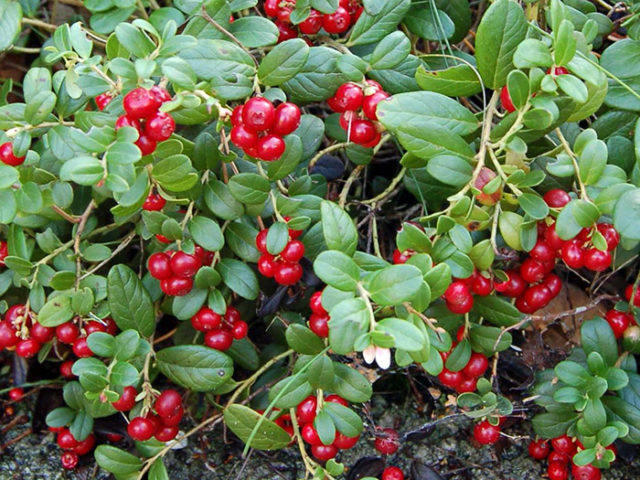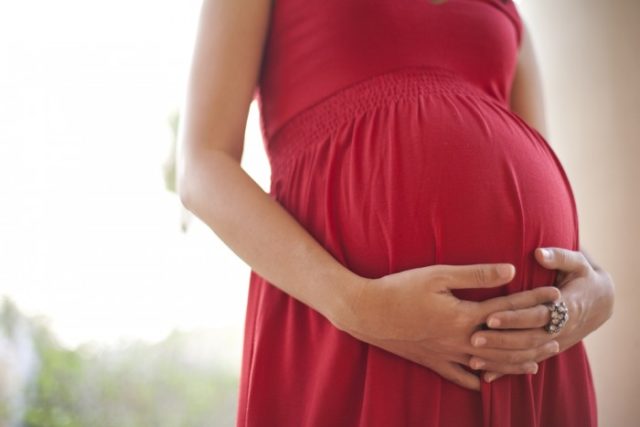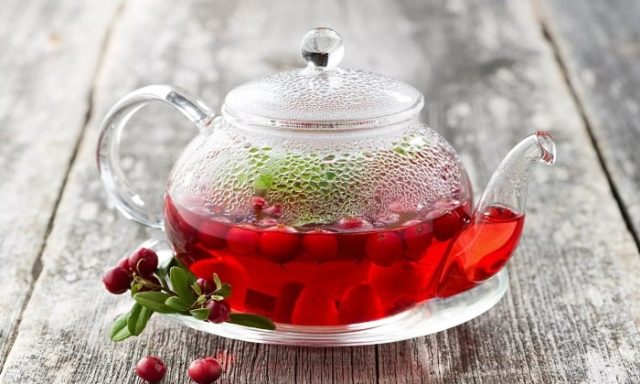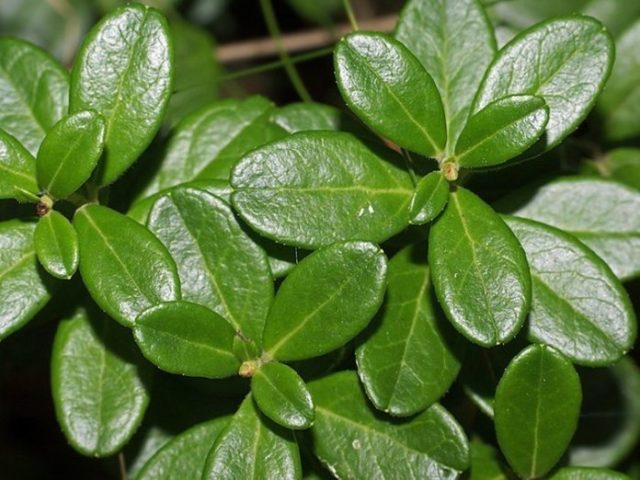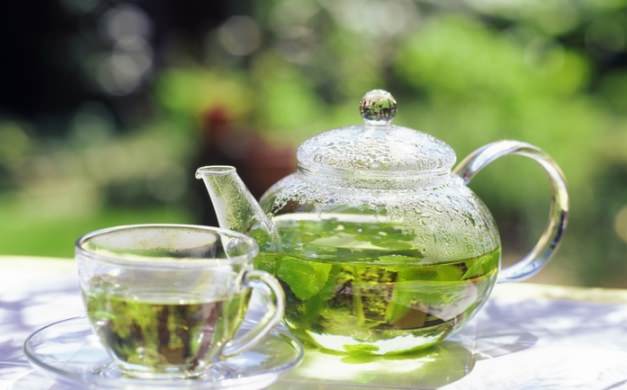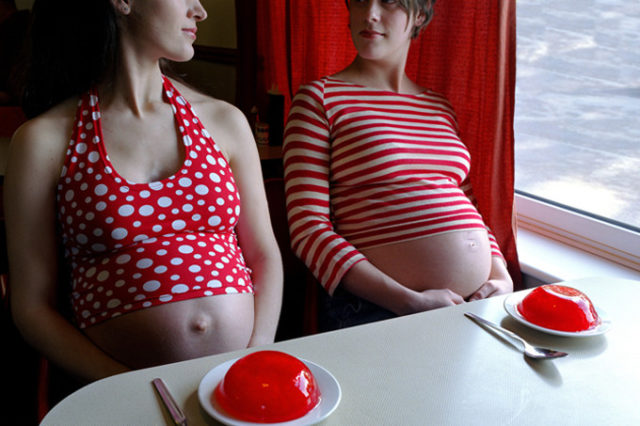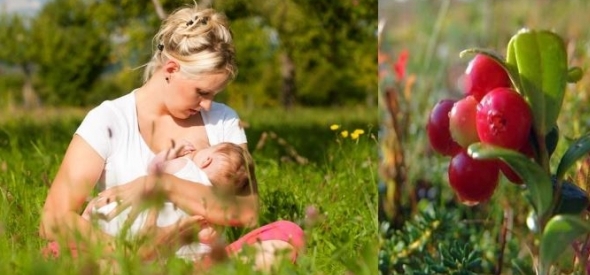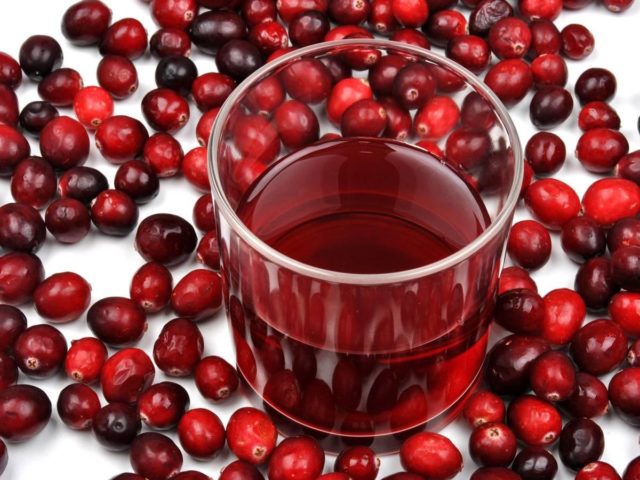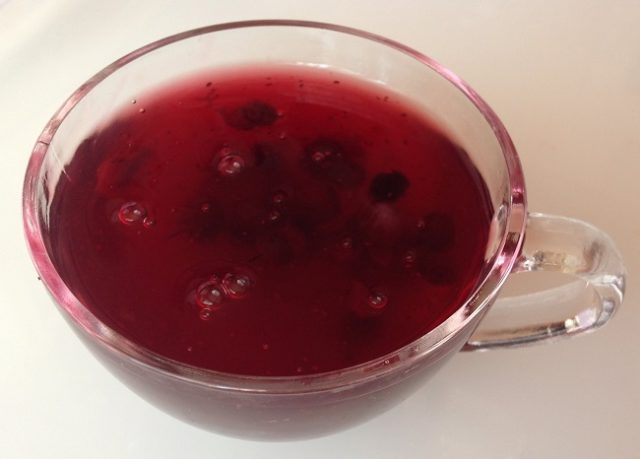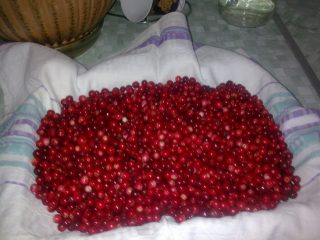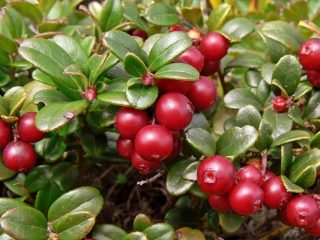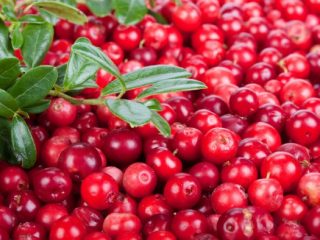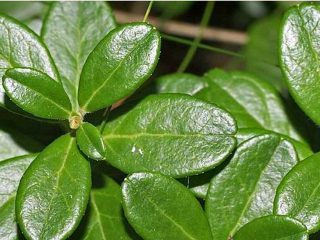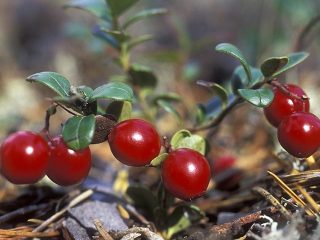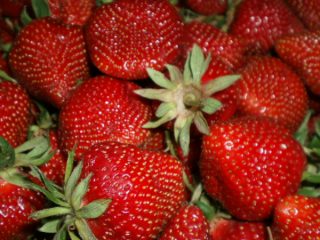Content
- 1 The benefits and harms of lingonberries for pregnant women
- 2 What are the benefits of lingonberries for pregnant women?
- 3 How to take lingonberries for pregnant women
- 4 Is it possible to use lingonberry leaves during pregnancy?
- 5 Lingonberry juice during pregnancy
- 6 Is it possible to have lingonberries while breastfeeding?
- 7 Restrictions and contraindications for use
- 8 Conclusion
Lingonberries during pregnancy can be an excellent alternative to certain medications. But it is important to remember that it contains many components that can not only support a woman in an “interesting” position, but also cause harm. Even if the expectant mother has often eaten lingonberries before and has no contraindications, during pregnancy the body is rebuilt and can react in an unexpected way to the usual food.
The benefits and harms of lingonberries for pregnant women
Different parts of lingonberries have similar, but not identical, effects. The leaves are a medicinal product and should not be taken without a doctor's prescription, especially during pregnancy. The effect of the berries is much milder; doctors use them as an auxiliary rather than a therapeutic agent.
In any case, whether pregnant women can eat lingonberries should be decided by a doctor.Careful intake of leaves is not discussed, but the berries can be harmful because a pregnant woman may experience aggravation of illnesses that she did not even imagine. If a pregnant woman registers in a timely manner and regularly visits a doctor, she does not have to specifically go to the clinic to find out if she can eat lingonberries. All you have to do is ask a question during your next inspection.
The benefits of lingonberries during pregnancy are clear if you carefully study its composition:
- Vitamin C has the ability to relieve inflammation, support immunity and promote collagen synthesis;
- B vitamins have a positive effect on the nervous system and improve metabolism;
- vitamins E, P strengthen and make blood vessels elastic, which is of great importance during pregnancy;
- pectins work like a vacuum cleaner, collecting and removing harmful substances from the body of the expectant mother;
- the minerals contained in lingonberries are needed by the musculoskeletal and nervous systems, for cell regeneration and bone growth, and the normal functioning of all organs;
- organic acids accelerate recovery processes and are needed for heart function;
- arbutin acts as an antiseptic;
- tannin prevents the development of bleeding, thereby reducing the risk of miscarriage.
Lingonberries for pregnant women can become both a friend and an enemy. It is important not to overuse teas and berries, consult a doctor and not self-medicate. For some reason, many people consider the leaves and fruits to be more harmless than medicines, take them uncontrollably, and are surprised when “herbs” cause harm to the body. At the same time, they forget that the most powerful poisons are of plant origin. And the expectant mother is responsible for two lives.
What are the benefits of lingonberries for pregnant women?
During pregnancy, lingonberry tea, decoction, juice, fresh or frozen berries can help:
- get rid of edema (due to the diuretic effect);
- saturate the body with vitamins and microelements;
- replace antipyretics and antibiotics during colds that are undesirable during pregnancy;
- relieve inflammation and moderate joint pain;
- prevent exacerbation of chronic diseases;
- calm the nervous system;
- remove harmful substances;
- in case of poisoning;
- lower blood pressure;
- reduce the amount of sugar in the blood;
- in the treatment of cystitis;
- cope with anemia (due to the presence of iron in fruits and leaves).
Naturally, you cannot self-medicate. As well as limiting yourself to only taking lingonberries, especially if you have serious health problems.
Lingonberries during early pregnancy
Lingonberries are especially useful for women whose pregnancy begins in winter or early spring, when the body suffers from a lack of vitamins - after all, the berries are easy to freeze or preserve in water, and the leaves are dried.
Sweet and sour fruit drink can moderate toxicosis. It is important to know when to stop and consume berries and drinks before 17-00 so that the diuretic effect does not appear at night.
Traditional medicine recommends taking an infusion of shoots with lingonberry flowers, very diluted and lukewarm, to prevent miscarriage.
Lingonberries during late pregnancy
According to reviews, lingonberry leaves help with swelling during late stages of pregnancy. In addition, approximately 10% of women develop specific gestational diabetes at the end of the second – beginning of the third trimester. This disease goes away after childbirth, but can harm the baby. Lingonberries gently reduce blood sugar and help you do without medications.
At the end of pregnancy, women are limited in fluid intake. Kissels and compotes with lingonberries, diluted juice will help cope with thirst.
How to take lingonberries for pregnant women
Pregnant women can eat lingonberries only when their doctor allows it. He also determines the dose, and, importantly, the time for taking berries and drinks. The temperature of infusions, teas and decoctions matters.
You should not eat fruits on an empty stomach - this can cause irritation of the gastrointestinal mucosa and heartburn.
Lingonberries during pregnancy for edema
Edema can accompany a woman throughout pregnancy, but more often occurs in the last trimester. They bring a lot of inconvenience to expectant mothers, and are a consequence of fluid retention in the body. Lingonberry juice will help you cope with swelling while simultaneously saturating your body with vitamins and microelements.
Lingonberry juice recipe
A glass of fresh or frozen lingonberries is crushed with a blender, or first poured over with boiling water and then ground through a sieve. Pour in 350 ml of hot water. Bring to a boil over low heat. Leave for 2 hours, filter, drink 30 minutes after meals, 100 ml 3 times a day.
Lingonberry for colds during pregnancy
Colds can be very dangerous during pregnancy. After all, the list of approved medications is limited, and symptoms must be relieved quickly so that inflammation does not harm the child.We recommend lingonberry tea for pregnant women, made from crushed berries, poured with boiling water and flavored with sugar or honey.
If you add leaves to the drink, its effect will be stronger, but first you need to consult a doctor.
Recipe for colds
Take a teaspoon of dried lingonberry leaves and fruits, pour 200 ml of boiling water, leave for 10 minutes. Strain the drink, add a teaspoon of honey, drink warm.
Is it possible to use lingonberry leaves during pregnancy?
Lingonberry leaves should not be taken during pregnancy without a doctor's permission. This is a medicine recognized by official medicine, and quite strong. The doctor should also give instructions for using lingonberry leaves during pregnancy: how to brew, when, how much and at what temperature to drink. It’s better to ask again if something is unclear than to harm the child.
Lingonberry leaf during pregnancy for edema
Edema can appear in the last trimester even in a completely healthy pregnant woman. To remove them, just pour a teaspoon of dried lingonberry leaves into a glass of boiling water and simmer for 10 minutes over low heat. Leave for 2 hours, strain, add to 200 ml and take 50 ml 4 times a day or 2 times 100 ml.
How to brew lingonberry leaves during pregnancy
If a doctor has prescribed a pregnant woman to take lingonberry leaves, he must tell her how to brew the medicinal raw material. There are four main ways:
- Decoction. This is the most powerful remedy, obtained by boiling the leaves in hot water for the time specified in the recipe. Then the broth is infused (no more than 6 hours) and filtered. For pregnant women, it must be diluted with water to reduce the concentration and taken before meals in doses not exceeding the doctor’s recommendations.
- Infusion. Lingonberry leaves are poured with boiling water and infused for up to 6 hours. Proportions, preparation time and doses depend on the doctor’s recommendations.
- Teas. The raw material is poured with boiling water, infused for no more than 10 minutes, and drunk like a regular hot drink. During pregnancy, it is recommended to put no more than 1 dessert spoon of dry leaves per liter of hot water in lingonberry tea.
- Tea balm differs from the herbal drink in that regular tea leaves are added to lingonberry leaves.
Lingonberry juice during pregnancy
Lingonberry juice is often called hypoallergenic. But a person may have an individual intolerance to any berries, especially red ones. Pregnant women need to be doubly careful, especially with products that they have not consumed before.
And although the medicinal product of lingonberries is (from the point of view of official medicine) the leaves and not the berries, before drinking the juice you need to undergo an examination. The fact is that during pregnancy, chronic diseases that the woman did not know or did not think about before can worsen. And acid irritates the gastrointestinal mucosa, can provoke the passage of stones from the gall or bladder, and cause an exacerbation of pancreatitis.
So, in any case, it is advisable for pregnant women to drink lingonberry juice diluted at least 2 times with water, and always sweetened. The fact is that sugar, its substitutes (for example, stevia) and honey soften the effect of acid.
But it is best to add juice to jelly, jelly, compote. This way it will undergo additional heat treatment, which will moderate the effect of especially aggressive acids and will be thoroughly diluted with water. Kissel and lingonberry compote quench thirst, retaining most vitamins and microelements, and have a mild diuretic effect.
Is it possible to have lingonberries while breastfeeding?
Before taking lingonberries while breastfeeding, you should not only consult your doctor, but also think carefully. Moreover, if mommy did not understand why she was allowed to eat the berries or drink infusions from the leaves, she needs to ask again or contact another doctor. Yes, exactly if allowed!
Why does it often happen that a pregnant woman can eat lingonberries, but a nursing mother can’t? The fact is that the unborn child is protected by such a powerful natural shield as the placenta. And everything that the nurse eats and drinks enters the baby’s body along with breast milk.
How can lingonberries be dangerous for a baby?
- There is a possibility that the child was not born completely healthy. He is unable to say that he is in pain, and crying can be explained by many reasons. It is possible that the newborn has some problems for which it is undesirable to take the substances contained in lingonberries. And there are a lot of them, including a whole range of acids.
- The diuretic effect of berries and leaves may not have any effect on a nursing mother, but the child needs much smaller doses.Together with urine, salts and vital elements for a fragile body are excreted.
- The same can be said about the mild laxative effect. Does your child need diarrhea? Perhaps just necessary if he is constipated. And if not?
- If a mother reacts normally to lingonberries, it does not automatically follow that the child will accept them well. And doing allergy tests on a baby so that the parent can eat a few berries is beyond good and evil.
- There are many more reasons why it is better to avoid lingonberries while breastfeeding.
Restrictions and contraindications for use
All restrictions and contraindications related directly to breastfeeding are discussed in the previous chapter. Pregnant women are often prescribed lingonberries as an independent or auxiliary medicine. The main thing is not to self-medicate, but to act under the supervision of a doctor.
Pregnant women should not eat lingonberries in the following cases:
- at low blood pressure;
- stones in the kidneys, gall bladder and bladder;
- with individual intolerance;
- diseases of the gastrointestinal tract with high acidity;
- with renal failure, glomerulonephritis;
- after any operation;
- during exacerbation of pancreatitis.
You should take lingonberries, teas, infusions and decoctions with extreme caution:
- in the first trimester of pregnancy;
- for any kidney disease;
- for pain in the right or left hypochondrium;
- threat of miscarriage.
In any case, you should remember these points:
- Lingonberry leaves are a medicine.You can’t even drink tea or balm with them without a doctor’s permission.
- It is better to avoid lingonberry juice and replace it with jelly, tea, jelly, compote. In any case, it needs to be diluted and a sweetener added.
- An “interesting” situation is not the best time to test new products on yourself. If a woman did not eat lingonberries before pregnancy, the optimal solution would be to replace them with another berry or herb.
- Lingonberries are so rich in acids, biologically active substances, vitamins, and minerals that their effect on the body of a pregnant woman is difficult to predict for a non-specialist. It is wise to consult your doctor.
- You need to start eating lingonberries with 1-2 berries, gradually increasing the dose. In any case, even a healthy pregnant woman should not eat more than half a glass of fruits per day.
- The safest way to use lingonberries is to make jelly from them!
Conclusion
During pregnancy, lingonberries can either replace medications of chemical origin or cause big problems. Before eating berries, drinking juices, infusions, teas and vitamin mixtures, you should consult your doctor. And under no circumstances should you prescribe them for yourself, or after listening to a friend or neighbor.
